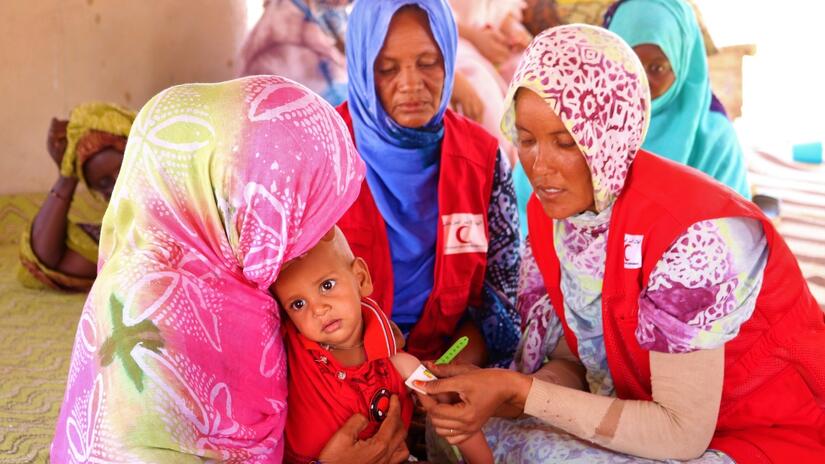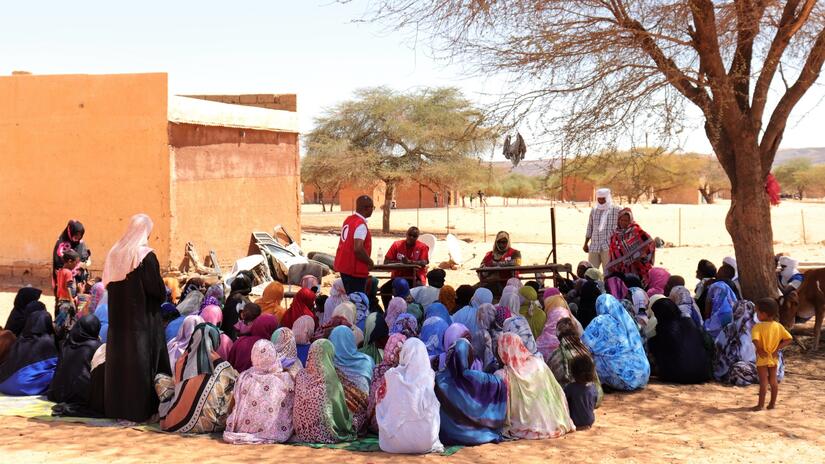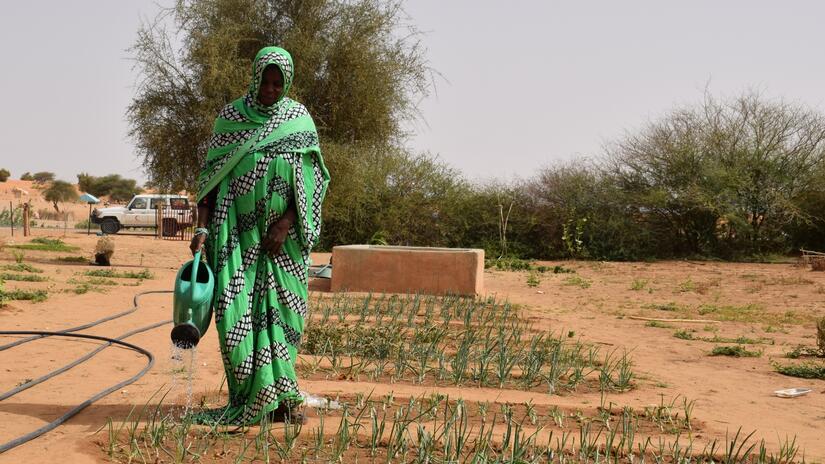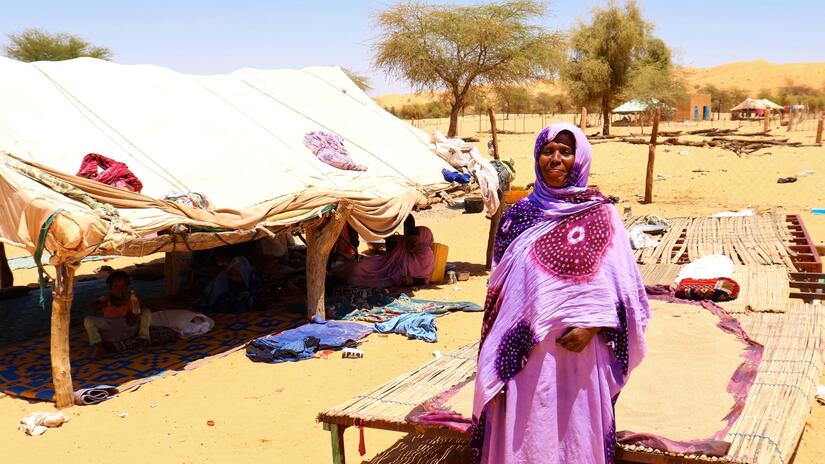In a small village in Barkeol, Mauritania, the sun has reached its midday peak, forcing villagers to seek shelter from its harsh rays in the shade.
Sat under a tent made of colourful printed fabric, a group of twenty women are chatting and smiling as they enjoy a lively discussion and debate. Rakia Salem, a volunteer from the Mauritanian Red Crescent, has just completed a training session with them on how to recognise signs of malnutrition in their children using a special bracelet.
Rakia joined the Mauritanian Red Crescent in 2020 as a facilitator for this local ‘mothers' club’, which was set up that same year.
"My role is to train mothers to screen children for malnutrition using the MUAC (mid-upper arm circumference) bracelet, which is a simple, easy-to-use tool that can help prevent a deterioration in their state of health," explains Rakia.
To demonstrate this to the group, she welcomes brave little Mohamed, a 3-year-old boy who was diagnosed with malnutrition a few weeks ago and who is now on the road to recovery thanks to early treatment.

Mauritanian Red Crescent volunteers measure the circumference of a small boy's arm in June 2023 to check him for malnutrition.
Photo: IFRC
Mother knows best
In Mauritania, many children are at risk of malnutrition due to recurrent food and nutrition insecurity, which is also affecting many other countries in Sub-Saharan Africa.
In response, the Mauritanian Red Crescent has been exploring different ways of diagnosing children more quickly and simply—with mothers’ clubs proving to be particularly successful.
“Being around their children every day, mothers are best placed to detect the first signs of malnutrition. That’s why we put them at the centre of our screening strategies,” explains Mohamed Abdallahi, Food Security and Livelihoods Manager at the Mauritanian Red Crescent.
There are now ten mothers' clubs in Barkeol, all providing women with a friendly forum to discuss maternal and child health, hygiene, sanitation, and good food and nutrition practices.
Crucially, the women who attend the mothers’ clubs have learnt how to detect signs of malnutrition early before it gets too advanced. Early detection considerably reduces cases becoming severe and prevents the need for hospitalization, which in turn relieves pressure on the limited available health services in the region.
“The earlier malnutrition is detected, the shorter and more effective the treatment. There are also fewer medical complications and a lower the risk of mortality," adds Mohamed.

A group of women take part in a mothers' club meeting under the shade of a large tree in rural Mauritania.
Photo: IFRC/Moustapha Diallo
Supporting women’s livelihoods
The mothers' clubs are also a great forum for building food resilience within communities in other ways.
As most families don’t have the resources to meet minimum daily food needs for their children, the Mauritanian Red Crescent is also training mothers’ club members in how to set up their own money-making activities.
Thanks to a small grant from the Mauritanian Red Crescent, the mothers' club in Barkeol has opened up a general store through which they sell food at a lower cost to villagers.
Other local women have received interest-free loans through the club, enabling them to set up small businesses selling couscous, processing cereals, making clothes, or producing soup. Some have chosen to invest their money in market gardening to boost their yields.
“We used to have a lot of difficulties, but thanks to the support of the Mauritanian Red Crescent, we are now able to improve our families' food security and diversify our children's diets,” explains Khadidiatou Mohamed Abdallahi, President of the mothers' club.

A woman in southern Mauritania waters recently-planted vegetables in her garden which will help her feed her family.
Photo: IFRC/Moustapha Diallo
--
To support people affected by food insecurity across Sub-Saharan Africa, the IFRC launched an Emergency Appeal in October 2022 to help Red Cross and Red Crescent Societies in 15 countries provide urgent and long-term assistance.
To date, the IFRC network has reached:
- 600,000 people with cash and voucher assistance
- 425,000 people with health and nutrition support, including child supplementary feeding
- 232,000 people with livelihoods support – such as training in income-generating activities and livestock management
- 1.2 million people with water, sanitation and hygiene assistance
In Mauritania, the appeal is supporting mothers’ clubs, like the one in Barkeol, and cash assistance to thousands of households.
To donate to our appeal and help us reach even more people, please click here.





